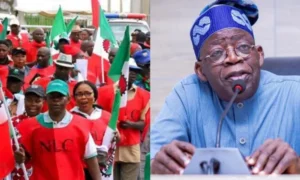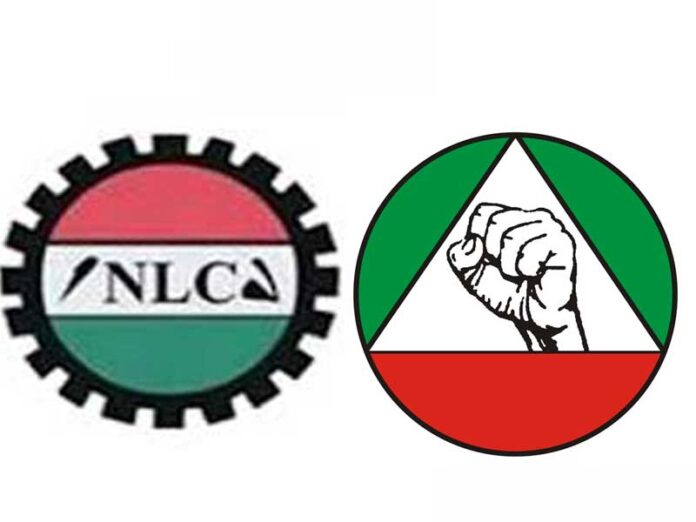To ensure harmony in the industrial sector of the nation, the Nigeria Labour Congress (NLC) and Trade Union Congress of Nigeria (TUC) have made a fervent appeal to President Bola Tinubu.
They have requested that the President refrain from presenting any proposed figures for the minimum wage bill to the National Assembly without consulting the organized labor and members of the Organized Private Sector (OPS).
Furthermore, they have reminded the Tinubu-led federal government that workers across all job levels in the country will persistently demand the payment of their minimum wage arrears, regardless of the length of time it takes for the new minimum wage to be signed into law.

Joe Ajaero, the President of NLC, and Festus Osifo, his counterpart from TUC, disclosed this information during a press briefing on Thursday at the Palais du Nation in Geneva, Switzerland, on the sidelines of the ongoing International Labour Conference.
The previous national minimum wage, which had a lifespan of five years, expired on April 18, 2024. It is worth noting that the last minimum wage came into effect on April 17, 2019, when the former President, Muhammadu Buhari, signed it into law.
During the joint briefing, Ajaero emphasized the importance of workers demanding the payment of their minimum wage arrears, irrespective of when a new national minimum wage law is passed by the National Assembly.
The labor leader expressed that it is imperative for the President to convene a meeting with tripartite bodies to discuss the ability to pay before arriving at a final figure.
Ajaero stated, “We expect the President to consult with organized labor, employers, and state governors before presenting a final figure to the National Assembly. It is crucial that all parties come together to discuss before transmission to the National Assembly.”
The TUC President added that even after the transmission of the bill to the National Assembly, labor will continue to engage in lobbying and advocacy to secure the best possible figure for Nigerian workers.
When asked about the exact figure included in the report submitted to the President, the leaders of the two labor organizations denied having knowledge of its full content and insisted that they did not sign any report.
“Furthermore, we have not seen the content of the report that has been submitted to the President. We will insist on reviewing the content and appending our signatures to each page. We will not sign any page that we are not comfortable with,” stated Ajaero during the press briefing.
On his part, Osifo explained that the reason behind demanding minimum wage arrears is the daily increase in inflation, which has had a negative impact on Nigerian workers.
Osifo said, “The previous minimum wage negotiation took about two years to conclude. That duration was due to fewer challenges compared to the ones we currently face. Food prices are high, the Naira has been devalued, and energy costs have skyrocketed.
“Urgency is of utmost importance now. We do not have the luxury of time. Negotiations began in January this year, and we are already discussing sending a bill to the National Assembly for a new minimum wage law.
“Since April 18, 2024, Nigeria has been without a minimum wage law. However, I assure Nigerians that labor will demand the payment of arrears, regardless of when the new law takes effect.”




